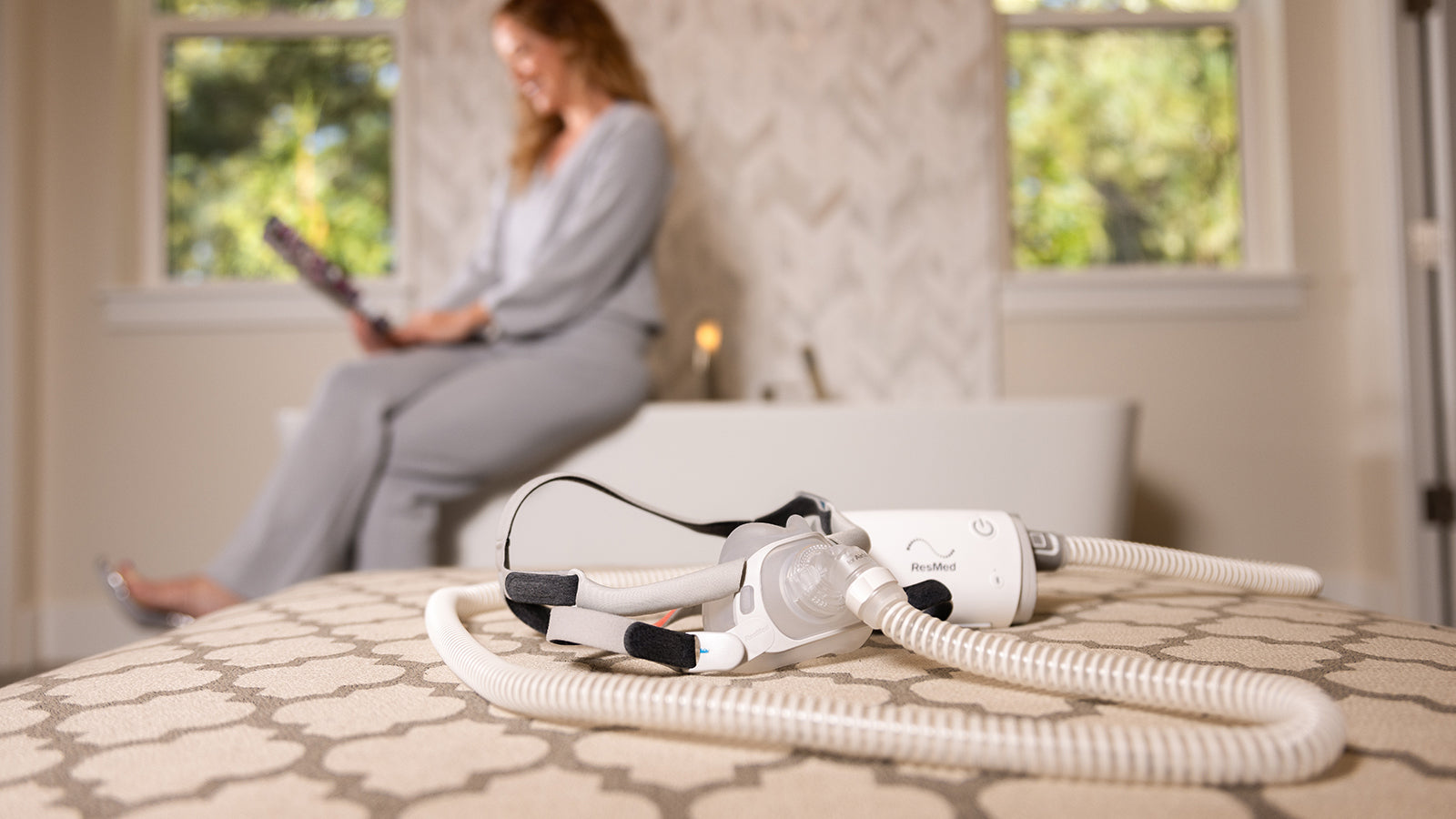
What is the Treatment for Sleep Apnea?
Whether it's using CPAP machines, oral appliances, or lifestyle changes like weight loss and sleeping on your side, our team is here to guide you to better sleep and overall health. Let us help you find the treatment that will keep your airways open and get you back to restful, uninterrupted nights.

CPAP machines are one of the most effective treatment options, keeping your airways open throughout the night for uninterrupted sleep.

For severe cases, surgery may be recommended to correct physical obstructions in the airway, offering long-term relief and improved breathing during sleep.

Making simple adjustments like losing weight, sleeping on your side, or using a tongue-retaining device can help reduce sleep apnea symptoms and enhance overall sleep quality.
types of therapy treatments
OSA THERAPY TREATMENT
CONTINUOUS POSITIVE AIRWAY PRESSURE (CPAP)
BILEVEL POSITIVE AIRWAY PRESSURE (BIPAP)
AUTO-ADJUSTING POSITIVE AIRWAY PRESSURE (APAP)
EXPIRATORY POSITIVE AIRWAY PRESSURE (EPAP)
CSA THERAPY TREATMENT
ADAPTIVE SERVO-VENTILATION (ASV)
SUPPLEMENTAL OXYGEN
MEDICINE CHANGES
ASSOCIATED MEDICAL PROBLEMS
SURGICAL TREATMENTS
Surgical treatments for obstructive sleep apnea (OSA) are typically considered only after non-invasive therapies, such as CPAP or BiPAP, have proven ineffective. These surgeries aim to remove or reposition tissues to clear the airway, and they are usually recommended when sleep apnea is severe or when therapy options cannot be tolerated. It's important to work closely with a healthcare provider to evaluate all non-surgical options before resorting to surgery.
SURGERIES FOR OSA
TISSUE REMOVAL OR SHRINKAGE
JAW REPOSITIONING
TONGUE-RELATED SURGERIES
NASAL SURGERIES
NERVE STIMULATION

LIFESTYLE CHANGES
Lifestyle changes are an important component in treating obstructive sleep apnea (OSA) and can significantly improve symptoms when used alone or alongside therapies and surgeries. Modifying daily habits can help reduce the severity of sleep apnea and enhance the effectiveness of other treatments.
For many individuals, making adjustments can lead to better sleep quality and fewer apnea episodes. These changes not only support overall health but also complement other therapies, creating a more holistic approach to managing OSA and enhancing long-term treatment outcomes.

How Can iSLEEP Help?
Once you’re diagnosed with sleep apnea through the WatchPAT® One device, iSleep steps in to provide you with personalized support throughout your treatment. Our knowledgeable and caring representatives will reach out to discuss your diagnosis and guide you through the available treatment options that best fit your needs.
We understand that choosing the right treatment can feel overwhelming, so we take the time to explain therapies, provide information on cost options, and help with insurance details.
FAQ
The best treatments for sleep apnea depend on the type and severity of the condition. Common treatments include CPAP therapy, which is considered the gold standard, as well as alternative options such as BiPAP, APAP, oral appliances, and surgery. At iSleep, we offer a range of superior treatments to meet your unique needs. Our high-quality masks, machines, and supplies are designed to ensure maximum comfort and effectiveness. Explore our products to find the best solution for your sleep apnea treatment.
While CPAP machines are the most widely recommended treatment for sleep apnea, there are alternative therapies available. Some individuals may benefit from a BiPAP or APAP machine, oral appliances like mandibular advancement splints, or even lifestyle changes and weight management. However, it’s important to note that most people with sleep apnea find CPAP therapy to be the most effective option. At iSleep, we can help you explore these alternatives and guide you toward the best treatment plan based on your specific needs.
Choosing the right sleep apnea treatment depends on factors like the type (OSA or CSA), severity of the condition, and your comfort with various devices. iSleep’s knowledgeable team can help you navigate your treatment options. After you are diagnosed, we’ll work closely with you to evaluate your symptoms, preferences, and lifestyle to recommend the most suitable solution. Whether you need CPAP therapy or alternative treatments, iSleep is here to guide you every step of the way.








